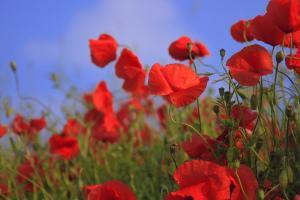This is the text of an article published in the Yorkshire Post today:
A couple of years ago a book was published that offers readings, prayers, poems and reflections for Remembrance. It is called ‘Hear My Cry’ – a repeated and heart-felt wrenching of the spirit taken from the Psalms.
But, it is the subtitle that grabs the attention: ‘Words for when there are no words’.
It sounds like a ridiculous paradox, yet anyone who has ever found themselves in despair will know exactly what it means. There are times in life – and always in the face of death – when we find ourselves empty and silent. As human beings we seem made to make shape out of chaos; but, bereavement can leave us simultaneously speechless and desperate for order. And we find we cannot control the grief or make it better.
In such circumstances we sometimes need the words of others when we have no words for ourselves. Someone else needs to provide the vocabulary for grief, the words for when we have no words and silence is too painful.
If this is true of most bereavements, it is particularly true when death is violent and distant. To lose a son or father or daughter or wife or husband in the course of military conflict brings a particular silence, a particular grief. The distance and the unknowing of the context makes the death more grievous – even if death is always death.
I have never lost anyone close to me in war, but my parents lived through the bombing of Liverpool during World War Two. I also took part in the intelligence support for British forces in the South Atlantic, and saw the consequences for those who were involved and had to live with the deaths of friends and colleagues.
If Remembrance Day did not exist, I think we would need to invent it. For two reasons:
First, we need to create a public event of remembering the people and events that have shaped the society to which we belong and in which we invest. Those whose loved-ones have died in conflict on our behalf need that public recognition of their loss. For their loss is our loss. Canadian singer-songwriter Bruce Cockburn watched the coffins of slain Canadian troops being carried off a military aircraft in Afghanistan several years ago, and wrote a song about it. Having described in the most moving language the tragedy and dignity of what he had witnessed, he writes: “Each one lost is everyone’s loss, you see; each one lost is a vital part of you and me”. That’s why need to remember publicly.

The second reason is that we simply cannot know who we are if we don’t remember where we have come from. It sounds obvious, but it isn’t easy to do. Our memories are selective and some memories do need to be left where they belong: in the past.
The story of Israel in the early chapters of the Bible is one in which public acts of remembering are integral. Prior to entering the Land of Promise the people are warned that they will too easily forget that once they had been migrants and slaves in a foreign land. Once they got their own land and built new lives they would prosper … and forget their own origins. Basically, they would then begin to treat other people as their slaves. So, the year was broken down into festivals that would compel the people to re-tell and re-enact their story, passing it on to their children and future generations. It would cost them the first and best ten percent of their harvest. And the edges of their fields would be left for homeless, hungry and sojourning people to find sustenance. That sounds like a twenty percent tax for starters.
Most religious communities shape the year similarly, celebrating festivals that shape our memory and remind us of what matters – especially that we are mortal, that we shall one day die, that a good society might be worth dying for. The loss of such festivals in secular society might be more costly than we realize.
The point is that we as a society need at least one day a year when we re-member – literally, put back together the parts (members) of our own story. We need to recall the cost that people have paid and continue to pay for preserving the freedoms we have. We need to recall with honesty and integrity those things which we should celebrate and those of which we should be ashamed – from which we might learn for the future.
That is where Remembrance Day fits in. Whether directly connected to the dead or bereaved, we come together in local communities to create space for remembering our common story. It stops the routine of life and creates silence in which we drop words for when words need to stop and silence reigns. We do it together, conscious of how fragile our lives are and how fragile our civilization is.
It is said that we should know for what we would die. I think we should ask ourselves for what we, in the light of our mortality, will live for.

